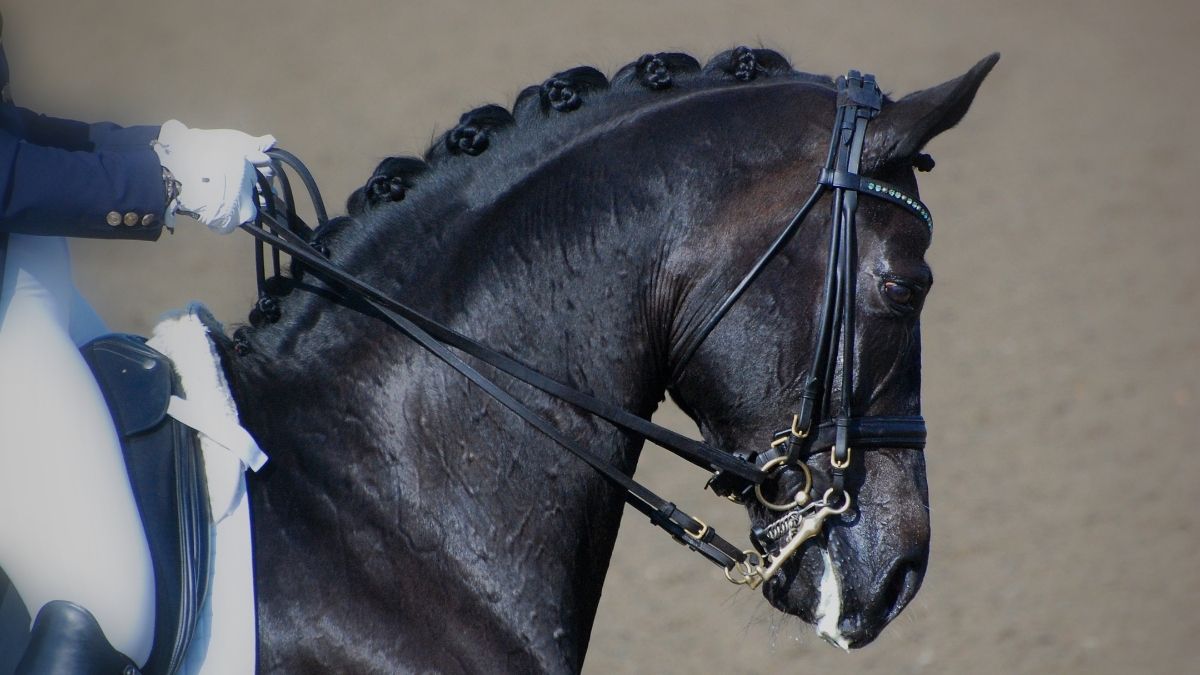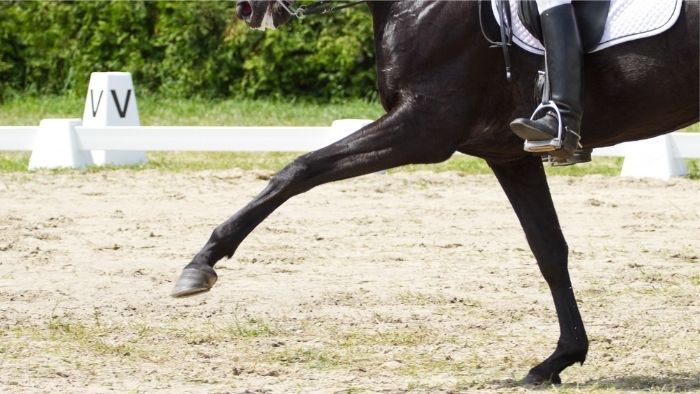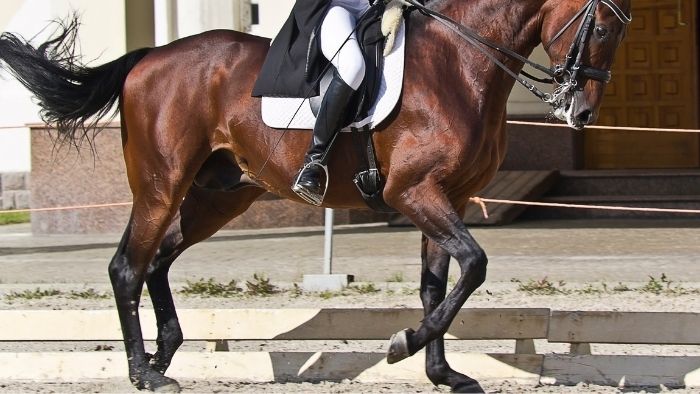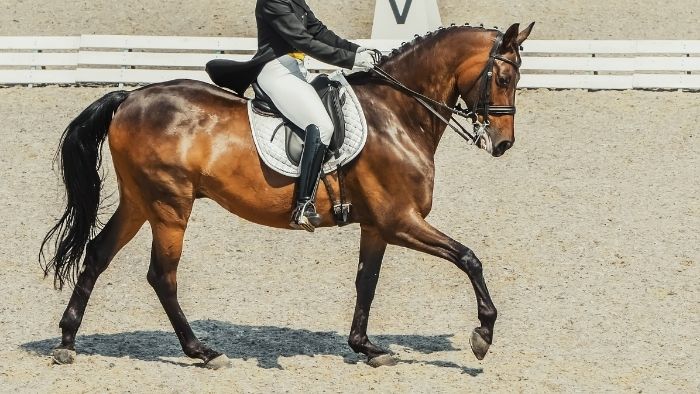You might have heard it’s so, and that’s why you ask: is dressage cruel to horses? The answer? No, but it can be.
Where animals are involved, there’s always a chance of humans being cruel. Since we can’t communicate with horses as we would with a fellow rider, some horse owners revert to cruel tactics to get their horses to perform dressage movements. This isn’t, however, the way it should be.
Dressage is a unique and beautiful sport. Many horses who perform at the highest level enjoy their training and competitions. When a rider has a good bond with their horse, they work in harmony and with compassion.
In this article, I explain what dressage is and why it’s so popular. I will also answer your burning question and give you some tips to get started with dressage training.
Why Dressage Is So Popular
Dressage is a popular sport and training discipline. The term “dressage” comes from French. It simply means to train your horse.
Dressage training teaches you to understand what your horse is telling you. It also helps your horse understand what you, as their rider, are telling them to do. Dressage looks beautiful when done right. Many people have compared dressage shows to ballet or figure skating.
Training in classical dressage has been done for centuries. Dressage works through training a willing horse. Dressage does not train a horse through submission. Dressage teaches riders and horses to work together in harmony. Dressage also helps shows riders the correct ethics of horsemanship and how best to train their willing horse.
Learning the discipline of dressage will give you and your horse a confidence boost. It’s an inspiring and challenging sport. Dressage will teach you the correct way to ride, develop your concentration, and reveal a lightness and ability to harmonize with your horse.
Is Dressage Cruel To Horses?
While beautiful, dressage is a controversial sport.
When dressage is done correctly, it isn’t cruel at all. The point of dressage is harmony between a horse and their rider. Harmony is only achieved by using a gentle approach and the correct training methods.
Some training methods are not allowed because it compromises a horse’s welfare. These cruel methods include:
Nosebands: Using nosebands can be extremely cruel. Nosebands can have detrimental effects on your horse’s mental health.
Shock Collars: Anther cruel training tool is shock collars. Using these can cause psychological and physical damage to your horse.
Spurs: The use of spurs is controversial. A spur is a metal attachment to boots. Kicking a horse with spurs can cause scarring and pain.
Rollkur: Rollkur is the hyperflexion of your horse’s neck. It causes severe damage and can lead to difficulty breathing, impaired vision, and other issues.
Dressage training affiliates do not encourage these training methods, and if horse owners are caught using them, they could be banned from participation and face animal cruelty charges.
How To Get Started With Dressage
It’s best to get a trainer specializing in dressage to get you and your horse started.
Your horse’s size and breed don’t matter, and the tasks your horse performed before starting their dressage training are also unimportant. Most trainers only require that your horse isn’t older than 4, be sound, and have the correct paces.
Before Training Can Begin
You’ll need to have the correct tack to ride dressage. Before training begins, get a dressage saddle and the proper reins. Some reins and leads aren’t permitted when training, so you need to research the basics of what’s acceptable beforehand.
Another way you can prepare is by riding a schoolmaster. A schoolmaster is a horse trained in dressage. Doing this will allow you to feel what riding a well-trained dressage horse is like.
You can also watch different dressage videos. These will show you what to look for during training sessions and give you a headstart, so you don’t struggle too much.
While Training
While training, your trainer will likely give you the dressage rule book to study. This book sets the rules out on tack and equipment. It also explains the way tests should be ridden.
Most rulebooks contain a section that explains each movement. This can be very helpful in your understanding of what judges look at during competition.
Some dressage competitions are specifically designed for specific horse breeds. When done right, it’s a beautiful sport.
Anyone with the right horse can train and compete in dressage competitions. Once you have the correct paces mastered, you can enter local competitions. Dressage is a sport you and your horse should enjoy!
In Conclusion
Dressage training can be cruel, but owners who love and respect their horses will never use brutal methods to train them. You can take gentle approaches to teach your horse dressage, and with patience and consistency, you’ll see amazing results.
If your horse is unwilling to train, you shouldn’t force them. Doing this is part of why many consider dressage cruel. Reluctant horses should be respected. If your horse enjoys dressage training, you’ll have an easier time mastering the basics and dominating competitions!
If you’ve found this article helpful, let me know in the comment section. You can also ask other questions you have about dressage and horses in general or share your own tips!
FAQs
Is it natural for a horse to do dressage?
While dressage movements can seem unnatural, the right horse for this sport will have natural athleticism. They'll enjoy learning dressage and participating in events. It's important to never force an unwilling horse to do dressage.
What is the point of dressage horses?
Dressage isn't only for competition. These techniques can help develop your horse's flexibility, responsiveness, balance, and strength.
Does horse dancing hurt the horse?
When done correctly, horse dancing won't hurt your horse.
Why do horses drool in dressage?
During dressage, some horses may drool. This can signify that they're calm, attentive, and submissive.



